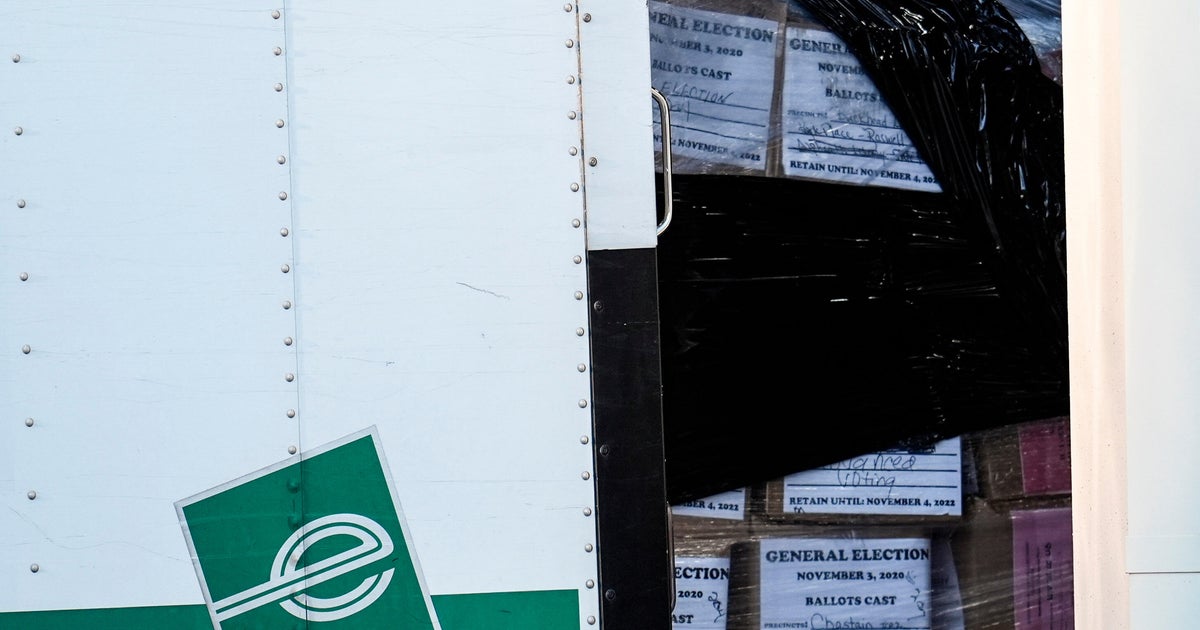Material seized in police raid of Kansas newspaper should be returned, prosecutor says
The prosecutor in Marion County, Kansas, said Wednesday that police should return all seized material to a weekly newspaper that was raided by officers in a case that has drawn national scrutiny of press freedom.
Marion County Attorney Joel Ensey said in a news release reviewed by CBS News that his review of police seizures from the Marion County Record found "insufficient evidence exists to establish a legally sufficient nexus between this alleged crime and the places searched and the items seized."
"As a result, I have submitted a proposed order asking the court to release the evidence seized. I have asked local law enforcement to return the material seized to the owners of the property," Ensey said.
Police raids on Friday of the newspaper's offices, and the home of editor and publisher Eric Meyer put the paper and the local police at the center of a national debate about press freedom, with watchdog groups condemning the police actions. The attention continued Wednesday — with TV and print reporters joining the conversation in what is normally a quiet community of about 1,900 residents.
The raids — which the publisher believes were carried out because the newspaper was investigating the police chief's background — put Meyer and his staff in a difficult position. Because their computers were seized, they were forced to reconstruct stories, ads and other materials. Meyer also blamed stress from the raid at his home on the death Saturday of his 98-year-old mother, Joan, the paper's co-owner. The Record said that after the raid, Joan had been "stressed beyond her limits and overwhelmed by hours of shock and grief," as CBS News reported earlier this week.
Meyer called the raids "Gestapo tactics from World War II" and compared them to actions taken by "Third World dictators." He said that during the raids, one reporter's finger was injured when her cell phone was wrested out of her hand, and video footage shows the reporter being read her rights, though she was not detained or charged, according to prior CBS News reporting.
The search lasted about 90 minutes. Meanwhile, Meyer's home was searched. Officers seized computers, his internet router and his cellphone.
The raids exposed a divide over local politics and how the Record covers Marion, which sits about 150 miles (241 kilometers) southwest of Kansas City.
A warrant signed by a magistrate Friday about two hours before the raid said that local police sought to gather evidence of potential identity theft and other computer crimes stemming from a conflict between the newspaper and a local restaurant owner, Kari Newell.
Newell accused the newspaper of violating her privacy and illegally obtaining personal information about her as it checked her state driving record online. Meyer said the newspaper was looking into a tip — and ultimately decided not to write a story about Newell.
Still, Meyer said police seized a computer tower and cell phone belonging to a reporter who wasn't part of the effort to check on the business owner's background.
Rhodes said the newspaper was investigating the circumstances around Police Chief Gideon Cody's departure from his previous job as an officer in Kansas City, Missouri. Cody left the Kansas City department earlier this year and began the job in Marion in June. He has not responded to interview requests.
Asked if the newspaper's investigation of Cody may have had anything to do with the decision to raid it, Rhodes responded: "I think it is a remarkable coincidence if it didn't."
A frantic effort to publish despite setbacks
As the newspaper staff worked late into Tuesday night on the new edition, the office was so hectic that Kansas Press Association Executive Director Emily Bradbury was at once answering phones and ordering in meals for staffers.
Bradbury said the journalists and those involved in the business of the newspaper used a couple of old computers that police didn't confiscate, taking turns to get stories to the printer, to assemble ads and to check email. With electronics scarce, staffers made do with what they had.
"There were literally index cards going back and forth," said Bernie Rhodes, the newspaper's attorney, who was also in the office. "They had all the classified ads, all the legal notices that they had to recreate. All of those were on the computers."
At one point, a couple visiting from Arizona stopped at the front desk to buy a subscription, just to show their support, Bradbury said. Many others from around the country have purchased subscriptions since the raids; An office manager told Bradbury that she's having a hard time keeping up with demand."SEIZED … but not silenced," read the front-page headline in 2-inch-tall typeface.




